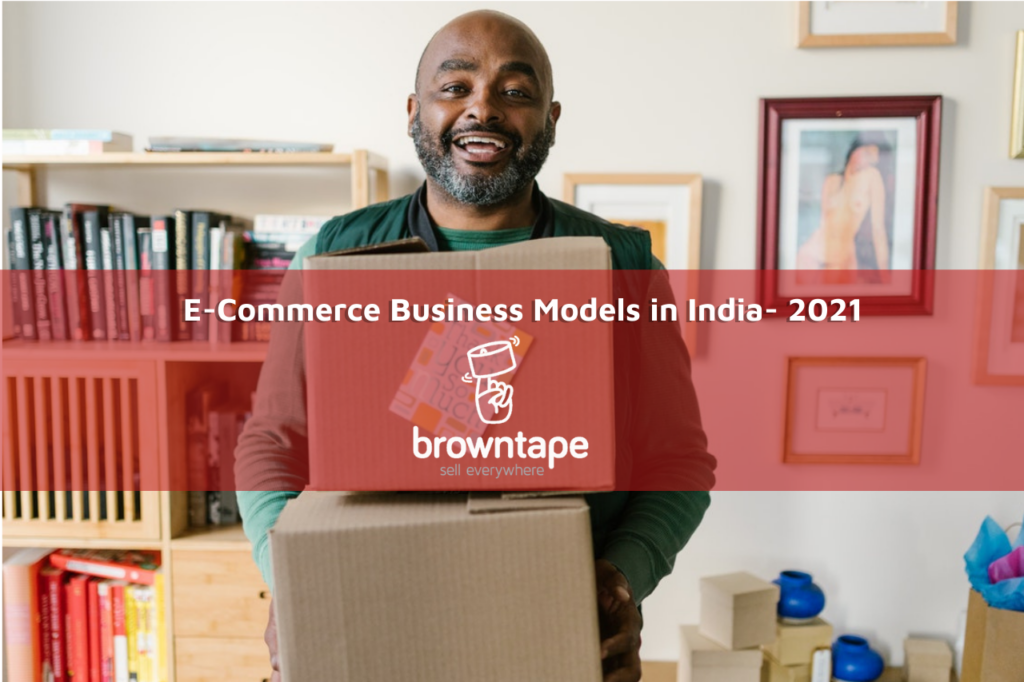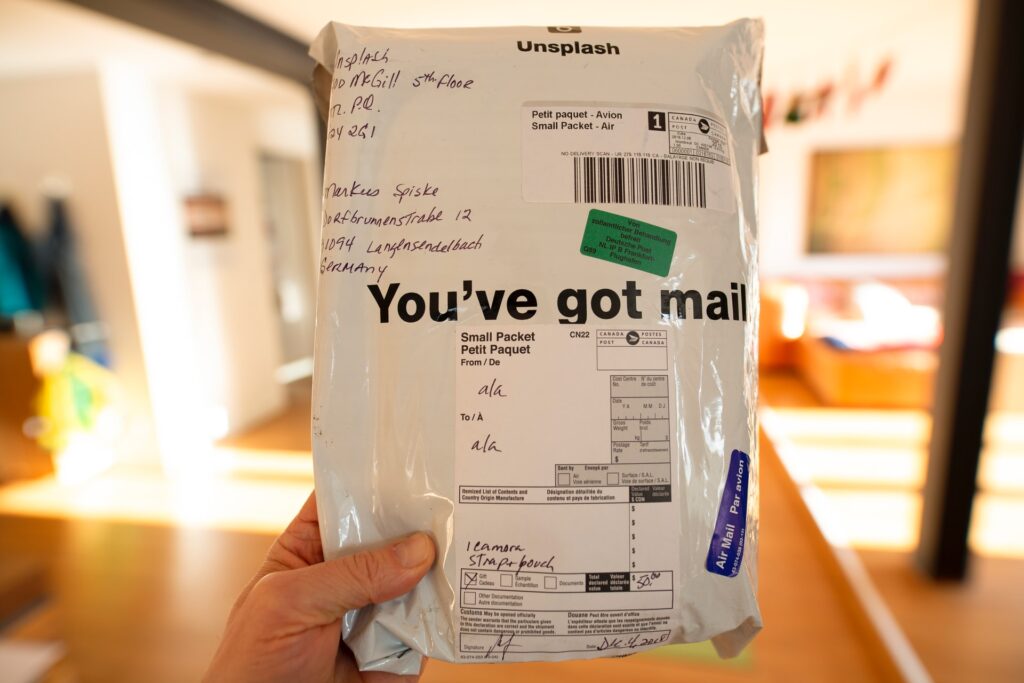
Ecommerce business models are evolving to be more complex as the industry grows. Just recently, research published by FIS Global stated that the ecommerce industry in India will grow to $111 Billion in revenue by 2024. So, if you are already an e-commerce seller or have sold online congratulations! However, as someone who is part of the industry you should be aware of the fundamental business models.
If one looks back, not one e-commerce marketplace has maintained the same business model they started with. The most simplistic example would be an Amazon or Flipkart; which started with books and grew to be the juggernauts they are today. Many sites start on an inventory-based model where they sell their own products but later become marketplaces. This allows them to offer a range of products and drive down prices. Now let us dive deeper into this topic.
Business to Business Ecommerce (B2B)
These are marketplaces that promote business between businesses. Simply put, the purchase is made to use as raw materials, to be used as a service to enhance one’s own business, or can be used to resell. A globally popular site is Alibaba.com which allows businesses from across the world, purchase products from enlisted sellers. Some B2B ecommerce marketplaces in India, are Indiamart.com, Industrykart.com, etc.
- Sellers & buyers are businesses
- A minimum order quantity is involved, usually 100 & above. Buyers cannot buy single pieces.
- Buyers can place requests for quotations, for customized products.
- Vertical B2B ecommerce sites are those dealing with a particular industry & complementary product category
- Horizontal B2B ecommerce sites are those which focus on products across categories.

Business to Consumer Ecommerce (B2C)
Here, the transaction is between a business and the end consumer. They are the virtual version of brick and mortar stores where a retailer sells directly to consumers. Owing to the pandemic, the adoption of such ecommerce business models grew drastically. Day today, we all shop for clothes, consumer durables, and even FMCG products. They can be stand-alone sites, marketplaces & more.
- B2C ecommerce business models are complicated in terms of logistics & supply chain, owing to the scale of customers that are dealt with.
- A store created on Shopify or Magento, selling directly to an end consumer comes under B2C. One such example is https://www.madish.in/. The inventory on such sites is usually limited and usually belongs to a sole proprietor.
- Then there are ecommerce sites that own their own inventory. For example Lenskart.com. They might have a suitable credit policy with their vendors, but the idea is to offer an almost unlimited range of options to their customers. Nykaa too started on an inventory model but moved to a marketplace model.
- Lastly, we have marketplaces such as Amazon India, Flipkart, Myntra, Ajio. Each marketplace may offer different ecommerce business models to sellers. These are slightly complicated to manage as you are competing directly against other sellers. This is where e-commerce management software such as Browntape help in end-to-end management of your e-commerce business.
Consumer to Consumer Ecommerce (C2C)
This ecommerce business model, enables the transaction of products and services between two consumers. A third party creates a site, payment gateway and ensures critical mass so as to make the business attractive to buyers and sellers.
- Some global examples of B2C ecommerce business models are Airbnb, eBay, and Craigslist. In India, we have sites like Olx.in, magicbricks.com, and more.
- On-boarding on a C2C site is simple and one can register as a person; not as a business entity.
- It allows anybody, from a student, homemaker, or working professional to buy and sell.
- However, a key challenge such ecommerce business models face is ensuring trust and preventing scams.

Business to Consumer to Consumer (B2C2C)
B2C2C is one of the ecommerce business models which falls under social commerce. However, we would like to call it organized social commerce (we will talk about social commerce in detail later). Here, a seller sells to a consumer (meaning not a business entity) and the consumer resells to another consumer. Meesho , Dealshare, Glowroad, and Bulbul are examples of such a model in India.
- For those who run such ecommerce models, it is complicated to understand the behaviors, pain-points, and motivations of the reseller. The sales after all are dependent on them.
- For a supplier, it is essential to enlist resellers who perform. This is often seen as a challenge.
- For the end-consumer, it is a matter of trust. They are after all buying from another person, a non-business entity. For a reseller, it then becomes essential to build a visible social profile and share ID detail with buyers if required.
- B2C2C ecommerce business models are still testing the waters, despite being around for a few years. Owing to the growth of social commerce, online sellers are hopeful that the trust barrier comes down and more consumers trust individual resellers.
- Resellers are often home-makers, retired individuals, students and those looking to grow another stream of income.
Direct to Consumer (D2C)
Direct to Consumer is an ecommerce business model which eliminates any kind of middle party. The sale is directly from the manufacturer to the consumer. A world famous example of this model is Tesla cars. Closer to India, there have been many companies which started solely as D2C. This format grew exponentially as more people turned to entrepreneurship. Companies also saw merit in taking this route as physical supply chains was disrupted. Thus shipping products directly to consumers worked practically.
- D2C allows companies to take full control of their supply chain. There are no external dependencies and hence it becomes easy to scale wide across the country without engaging distributors or retailers.
- D2C works well profit-wise too. There are no margin cuts owed to middle-men. Hence production & marketing costs are two large cost centers; increasing the profit margins.
- Many start-ups offering niche products mainly, started as D2C. They sold exclusively through their website. Some examples are Feel Mighty, Pee Safe, Sunday Mattress, Daily Objects, and Souled Store. However, India is a complicated market and it is difficult to maintain a pure-play D2C model here.
- You will see that most brands adopt a D2C model in the beginning, to maintain control and keep costs low. However, as the business grows, they tend to adopt various methods for distribution. WOW shampoos began as D2C, then moved to marketplaces and now has even begun physical distribution in brick & mortar stores.
Social Commerce
When the pandemic erupted in 2020, different types of business models emerged. One of them was, what we like to call un-organized social commerce. It is true that the B2C2C model is a type of social commerce, however, it is led by an ecommerce company such as Meesho and hence organized. The unorganized social ecommerce we are talking about is that which led to the growth of micro-entrepreneurs during the pandemic. Manufacturers, small-scale businesses – all wanted to do business. However, the shutting down of their brick & mortar shops meant they had to move online.
- While eCommerce sites have complicated registration procedures, nothing stopped them from starting to sell their products on social media.
- Facebook marketplace blossomed at this opportune time. It allowed resellers to sell even a couple of items, make sales online. Manufacturers enlisted resellers via Facebook groups, ads, etc. These included not just housewives and students, but those trying to earn an income. It was a great opportunity for micro-entrepreneurs.
- Whatsapp was a major contributor to sales- as per a Moneycontrol article, 40% of the sales were done via Whatsapp. Resellers also reached out to people they know in person, giving a personalized experience to buyers. In tier 2 and 3 towns, this counted a lot.
- While still relatively new, compared to organized social commerce platforms like Meesho; it would be interesting to see how this model of e-commerce develops over time.

Classification Basis Sourcing, Marketing & Revenue Flow
Drop-Shipping
This was one of the ecommerce business models which emerged as an answer to a key entry barrier for small businesses. Capital. In drop shipping, a seller does not own the inventory nor does he store it. He also does not spend cash in buying inventory in bulk. Instead, he acts as a medium through which end consumers can place an order with suppliers. The supplier directly ships the product to the consumer. The supplier’s share from the revenue is then passed on to him.
- Dropshipping became a preferred ecommerce model for trend-savvy entrepreneurs who knew how to select the right products. Many online stores sourced products directly from China for example and got them shipped directly to customers. A company that did really well with this model is Shein which was banned finally by the Government of India.
- A few disadvantages of dropshipping are that the shipping speed is often slow. To make a good margin, ecommerce sellers have to source from other countries. It can take up to a month at times to get the product delivered.
- The margins are thin due to the product prices are low. A reseller may not be able to sell the volumes required. So it takes perseverance to build a business.
- You can choose to work with local suppliers or choose a part-service, part-product model such as a print-on-demand business.
Private Labels
Private labels came to the fore in Indian business in brick & mortar store. This was when large retailers such Reliance Fresh and Vishal Mega Mart realized that they can sell products under their brand by sourcing them from existing manufacturers. They already had their store as an offline channel for selling.
- Private labels became a part of ecommerce business models when online retailers realized it was a good way to own a brand but not invest capital. So they outsourced the manufacturing and had the manufacturer package the products in their branded packaging.
- It is a good way to test a product concept before getting into manufacturing an item by oneself. For example, a businessman may want to source and sell silicon dishwashing gloves by private labeling them. If consumers show enough demand, then he may decide to manufacture these gloves himself to make larger profits.
- The buyer decides the specifications of the product and can ask for customization.
- Inventory usually needs to be maintained by the buyer/e-commerce seller

White Labels
Many people tend to get confused between white labels and private labels. White labels are well-established brands with great products, that allow other businesses to also brand them as their own. One can see this happening in the case of beauty products or cooking oil.
- White labels are an extra source of revenue for companies who are doing well in their product vertical. It is also perfect for those who have created a unique product, probably patented. It lets other ecommerce sellers participate in selling such products while maintaining the ownership of their technology, design, or intellectual property.
- For an ecommerce seller, wishing to use this method of sourcing; it is a guarantee of quality.
- However, it should be noted that the buyer (ecommerce seller), cannot ask for customization or product changes. White labels essentially tantamount to cosmetic changes in the labeling and branding. Low-cost electronic items like electric massagers, headphones, etc. are usually white labeled.
As a player in the ecommerce industry, it helps to be aware of the various business models. You may not be an ecommerce seller but maybe a service provider. You may be already selling online but may want to try dropshipping. All in all, it does help to stay ahead of the curve and know how the ecommerce industry is developing.
